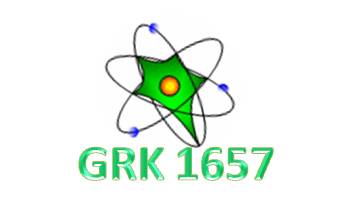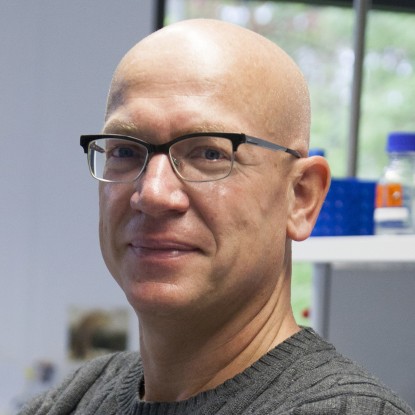- Technische Universität Darmstadt, Departments of Biology, Chemistry and Physics
- GSI Helmholtzzentrum für Schwerionenforschung Darmstadt
- Goethe Universität Frankfurt, Department of Radiotherapy and Oncology

The application of radiation in tumor therapy and the protection of humans and their environment from negative effects of radiation are important societal tasks. The research field of molecular radiation biology investigates the basic mechanisms underlying the biological effects of ionizing radiation and therefore contributes to an improvement of our quality of live. Heavy ions represent, in addition to X- and gamma-rays, a kind of ionizing radiation, which is important for radiation protection; it is provided for research applications at the facilities of the Gesellschaft für Schwerionenforschung (GSI) in Darmstadt. Heavy ions deposit a high density of ionizations along their path and are particularly efficient to generate genetic alterations. The great therapeutic success of heavy ions in tumor therapy is based on the fact that they are able to specifically inactivate a tumor while the surrounding tissue is largely spared out from radiation damage. Despite this significant scientific and economic relevance, our knowledge about the biological effects of ionizing radiation and particularly about heavy ions is still incomplete. This is partly explained by the technical challenge to perform heavy ion experiments and to organize an interdisciplinary research environment, which is necessary to investigate the full spectrum of the mechanisms of action of ionizing radiation.
The research training group (Graduiertenkolleg) focusses on a combination and merger of innovative cellular and molecular as well as bioinformatical research strategies with the aim to understand the action of ionizing radiation over a wide range from the molecule to the whole organism. The Leitmotiv of our endeavour is a basic research strategy which investigates radiation effects by using state-of-the-art microscopic, modelling, cellular and irradiation approaches and technologies. A main element in this strategy is the collaboration of experts from Biology, Chemistry and Physics of the TU Darmstadt with the renowned radio-biophysical group at the GSI and the Klinik für Strahlentherapie der Medizinischen Fakultät der Johann Wolfgang Goethe Universität in Frankfurt. The research training group will establish an interdisciplinary teaching and research environment which meets the demands of this interdisciplinary research field and provides a graduate program with a focus of education on professional needs and scientific qualifications.
Fields of activity
The different projects are divided into three research complexes. Each complex addresses a specific area of questions and will be investigated by several research groups in a highly interdisciplinary manner. However, there is considerable overlap between the research complexes, mainly with regard to model systems and methodological procedures. The latter involves modern molecular biological approaches as well as state-of-the-art microscopy. Primary and transformed human cell lines represent the model systems of choice.
- Molecular characterisation of the damage response after radiation
- Cellular investigation of the damage response after radiation
- Effect of ionizing radiation on the level of tissue and organs


